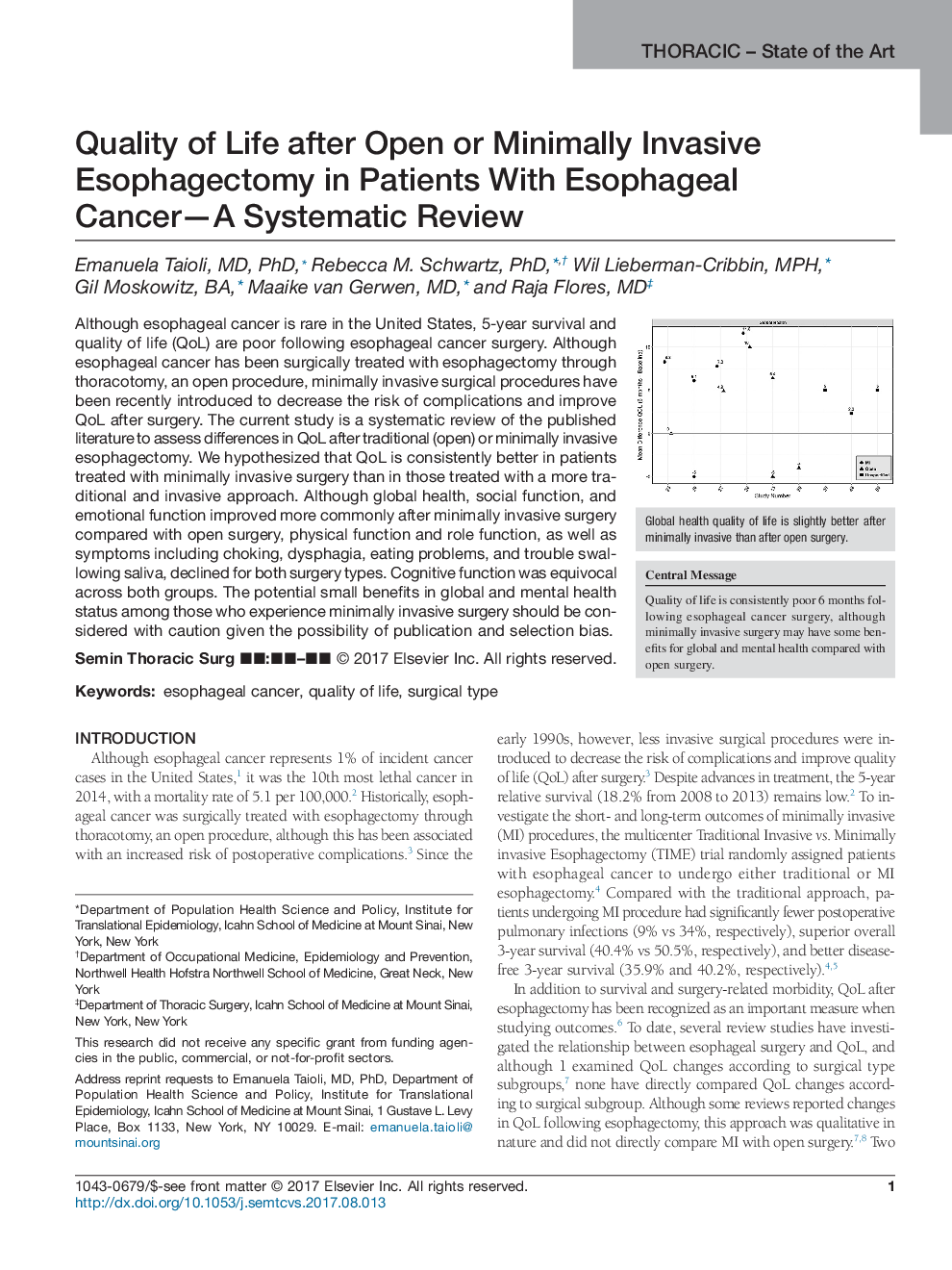| Article ID | Journal | Published Year | Pages | File Type |
|---|---|---|---|---|
| 8679174 | Seminars in Thoracic and Cardiovascular Surgery | 2017 | 14 Pages |
Abstract
Although esophageal cancer is rare in the United States, 5-year survival and quality of life (QoL) are poor following esophageal cancer surgery. Although esophageal cancer has been surgically treated with esophagectomy through thoracotomy, an open procedure, minimally invasive surgical procedures have been recently introduced to decrease the risk of complications and improve QoL after surgery. The current study is a systematic review of the published literature to assess differences in QoL after traditional (open) or minimally invasive esophagectomy. We hypothesized that QoL is consistently better in patients treated with minimally invasive surgery than in those treated with a more traditional and invasive approach. Although global health, social function, and emotional function improved more commonly after minimally invasive surgery compared with open surgery, physical function and role function, as well as symptoms including choking, dysphagia, eating problems, and trouble swallowing saliva, declined for both surgery types. Cognitive function was equivocal across both groups. The potential small benefits in global and mental health status among those who experience minimally invasive surgery should be considered with caution given the possibility of publication and selection bias.
Keywords
Related Topics
Health Sciences
Medicine and Dentistry
Cardiology and Cardiovascular Medicine
Authors
Emanuela MD, PhD, Rebecca M. PhD, Wil MPH, Gil BA, Maaike MD, Raja MD,
